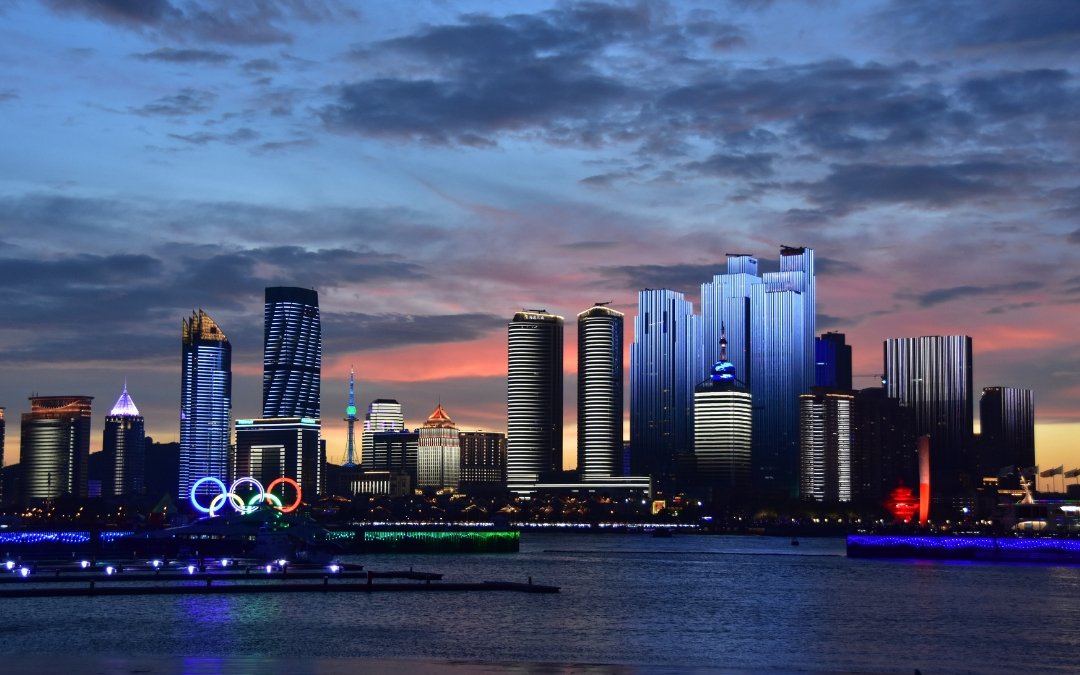If you say you’re flying to Qingdao for a short getaway it’d probably draw a blank on most people’s faces. Translating it into English as the Green Island wouldn’t help either—on the contrary, it might confuse people further.
But one of the most well-known brands in the world is named after it. You’d certainly have seen it in pubs, supermarkets, beer gardens… that’s right: Qingdao is the birthplace of Tsingtao beer, which is, in fact, simply a different form of Romanisation of the word Qingdao.
And Tsingtao beer is one reason why Qingdao is a great destination for the traveller who wants to explore somewhere off the beaten path—but not so off that you have to beat the path yourself.
Tsingtao beer is not only Qingdao’s biggest export but China’s largest export brand, so it comes as no surprise that much of the city is proud of, and devoted to, its successful child.
Asia’s Answer to Oktoberfest
Beer lovers, raise your mugs and say “Gan Bei” when giving a toast in Mandarin.
Drinking beer is an essential part of Qingdao’s civic life and a nationally recognised Qingdao International Beer Festival is hosted annually during August. It’s a raucous, carnivalesque festival to which all local and international beer companies across China flock to promote their beer.
During the event, dazzling stage performances, endless buffet spreads and of course, rivers of beer are served up, all to be consumed by merrymaking crowd that seems ever thirsty for more.
The German Connection
But if you’re at Qingdao on any other month, there are still tons of beer-related activities to participate in.
Top on the list is the Tsingtao Brewery, which is the second largest brewery in China. There, you can take a tour of the brewing process and have a taste of the beer in its various stages of fermentation and filtration.
Fun fact: while taking the tour, you’ll also learn that even though Tsingtao beer is synonymous with China, it was actually started in 1903 by the Germans.
Now, you might be asking, how did the Germans get to Qingdao? Well, from 1898 to 1914, Qingdao was a German colony. This historical fact explains why the city of Qingdao is populated with beautiful and historical European architecture.
For instance, you mustn’t miss the Qingdao Protestant Church (commonly known as the Qingdao Christian Church), which was built in 1910 and boasts an authentic German bell in its bell tower, or the Catholic church that came into existence shortly after in 1934.
The Bavarian style of these buildings, with their mound-like roof and austere ochre bricks, respectively, will take you straight back to Europe.
And coastal Europe is what Qingdao will remind you of. The city is located by the sea, so it is blessed with many beautiful beaches. We would recommend going to the more secluded beaches, however, as the popular ones tend to be packed with tourists. We recommend either Old Stone Man Beach or Laoshan Beach for a more peaceful and quiet experience.
With the sea hugging the edge of the city, Qingdao’s seafood is incredibly fresh and, in most cases, was probably still alive mere minutes before it is served on your plate. Try it at any of the many restaurants in Qingdao, though for such fresh seafood, you’d ideally want it simply prepared without heavy sauces being slathered over it. Go for a restaurant that specialises in seafood—there are plenty around the city centre.
And getting there is easy: Scoot flies to Qingdao direct five times a week; if you manage to grab a ticket during one of Scoot’s frequent sales, this 6-hour flight might even cost less than taking a plane to Bangkok!
Qingdao is everything at once: the epicentre of the beer industry in China but also an idyllic seaside city dotted with beaches; and at the same time, an European outpost that has re-embraced its Chinese character.
➯ Did you like this post? Pin it and share it with others!





